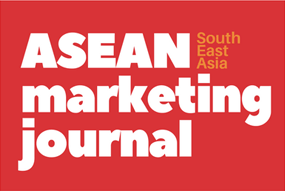
Abstract
Abstract
Manuscript type: Research Article
Research Aims: After the COVID-19 pandemic and during the pandemic, there has been a surge in the usage of ride-hailing services. The motivation objective of this study is to ascertain the causes behind the high consumer satisfaction with ride-hailing. This study examines the role of service quality, and price in driving consumer satisfaction, and the implications for electronic word of mouth mediated by customer personality.
Design/methodology/approach: Using purposive sampling methods, 610 users of ride-hailing services were chosen as the sample for this study. Processing survey data through data analysis utilizing Smart-PLS 4.0 software and structural equation modeling.
Research Finding: The results showed that service quality and price can change consumer personality to encourage consumer satisfaction so that customers are willing to electronic word of mouth. Consumer personality and consumer satisfaction can moderate prices for electronic word of mouth.
Theoretical Contribution/Originality: This study contributes to the latest literature in the field of marketing, particularly in the online transportation service industry, by demonstrating that customer satisfaction is a key driver of willingness to engage in electronic word-of-mouth (eWOM). Consumer personality and price can enhance customer satisfaction, and both customer personality and satisfaction can mediate the effect of price on eWOM.
Practitioner/Policy Implication: The study highlights key managerial implications for the online transportation industry. Prioritizing customer satisfaction, understanding consumer personalities, strategic pricing, and leveraging eWOM emerge as critical strategies. By tailoring approaches to enhance satisfaction, address varied personalities, and implement transparent pricing, businesses can drive positive eWOM and foster sustained growth.
Research Limitation: The sample size in this study, comprising only 610 Indonesian ride-hailing service users, represents a limitation, potentially impacting the generalizability of the findings. Moreover, the study focuses solely on specific factors influencing customer satisfaction, namely service quality, price, and customer personality, overlooking other potential contributors such as brand preference, reputation, trust, ease of use, and safety. Additionally, the analysis utilizes SEM Smart-PLS 4.0 software with survey techniques, neglecting experimental or empirical research methods.
Bahasa Abstract
-
References
-
Recommended Citation
Khairani, Zulia; Nofrizal, Nofrizal; and Putri, Librina Tria
(2024)
"The Secret to Ride-Hailing Customer Satisfaction and Willingness to e-WOM: Uncovering the Advantages of Price and Consumer Personality,"
ASEAN Marketing Journal: Vol. 16:
No.
1, Article 3.
DOI: 10.7454/amj.v16i1.1213
Available at:
https://scholarhub.ui.ac.id/amj/vol16/iss1/3





